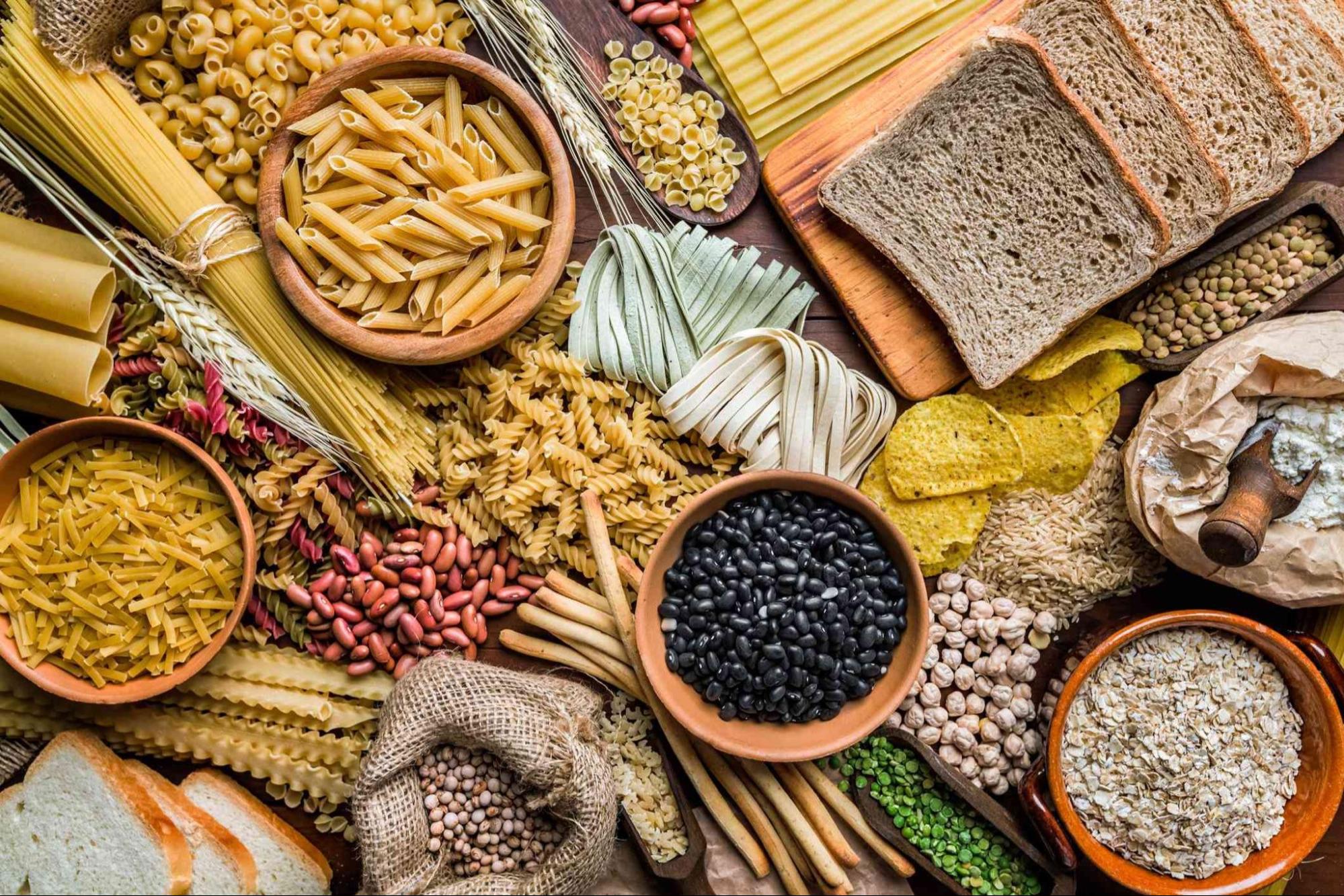A high-carb diet can come with several health benefits, from boosting energy levels and providing essential nutrients to aiding in weight loss. But when it comes to how many carbs is too much, many people become confused – is there such a thing as an ideal amount of carbohydrates? The answer isn't straightforward; what counts as 'too much' depends on various factors, including your body type, calorie needs, activity level, and more. In this blog post, we'll take an in-depth look at carbohydrates and explore the different types available. We'll also examine just how important getting the right balance of carbs can be for optimal health – read on to find out more!
What’s The Recommended Carb Intake Amount?
Regarding our dietary intake, experts have long debated the optimal amount of carbohydrates for a healthy lifestyle. The Dietary Guidelines for Americans have set a standard, recommending that between 45% to 65% of our daily calories come from carbohydrates. For someone with a daily calorie intake of 2,000, this translates to a broad range of between 900 and 1,300 calories from carbs, roughly 225 to 325 grams. This may sound like a lot, but it's important to note that carbohydrates are an essential macronutrient that our bodies rely on for energy. However, not all carbohydrates are created equal, so balancing your intake with sources like fruits, vegetables, and whole grains is crucial to keep your overall diet varied and nutrient-rich.
Related Link: How to Lose Fat Fast: Burn Calories, Lose Body Fat
Some Signs You’re Consuming Too Many Carbs
Your Stomach Is Swollen
If you're feeling bloated and your belly looks a bit more round than usual, it could be a sign that you're eating too many carbs. When we eat carbohydrates, our bodies break them down into glucose, used for energy. However, when we consume too many carbohydrates, our bodies can't use it all up, and it's stored in our bodies as fat. This can lead to a swollen belly and discomfort caused by abdominal gas. Familiar sources of carbohydrates like carbonated drinks and fiber-rich foods are well-known for producing gas in our gut. So, if you've been experiencing any of these symptoms, it might be time to take a closer look at your carb intake.
Do you want to fuel your fitness journey with performance-optimizing gummies? Check out HUMBLEROOTS today!

Carbohydrates are essential to our daily diet and provide our bodies with much-needed energy. However, going overboard with carb consumption can cause problems. One of the most noticeable signs that you're eating too many carbs is bloating. Carbs bind with water in your body, meaning you hold onto three grams of water for every gram consumed. This results in excess water retention, which leads to that bloated feeling you get after indulging in a carb-heavy meal. So, if you feel bloated frequently, it may be time to reevaluate your carb intake.
You’re Always Hungry
If you've noticed that you're feeling hungry all the time, it could be a sign that you're eating too many carbs. When we overconsume carbohydrates, our bodies tend to crave more food and take in more calories than we need. While you may feel energized shortly after eating a carb-heavy meal, refined carbohydrates don't provide the same satiety level as fiber-rich carbs, healthy fats, and protein. This can leave you feeling hungry again soon after you've finished your meal, which can create a pattern of overeating and eventually lead to weight gain. So, to avoid constantly feeling hungry, try cutting back on your carb intake and filling up on more satisfying foods instead!
Related Link: Best Full Body Workout for Weight Loss
You’re Always Exhausted
If you're wondering how to spot if you're eating too many carbs, it's essential to be aware of the short-term effects on your body. Glycemic fluctuations in response to high-carbohydrate meals can cause sudden, temporary spikes in energy followed by sudden drops that lead to fatigue, mood changes, and hunger pangs. It's a vicious cycle, and balancing your carbs with other macronutrients can help you avoid these ups and downs and maintain steady energy levels throughout the day so if you're feeling sluggish and aren't sure why, it might be time to reevaluate your carb intake.
Looking for an all-natural supplement company that puts quality and performance first? Visit HUMBLEROOTS today!

Brain Fog
It may be time to reevaluate your carb intake if you struggle to remember even simple things, like where you put the remote or what you had for breakfast this morning. A diet high in carbohydrates and sugar can lead to mood swings and energy crashes, leaving you feeling foggy and forgetful. Recent studies are exploring the link between sugar consumption and brain impairment, with preliminary findings showing that rats who consumed more sugar had a more challenging time navigating through a maze than those who followed a healthy diet. So next time you reach for that bag of potato chips or sugary treat, remember the effects it may have on your brain function.
Counting Your Carbs
Carbohydrates are vital nutrients that the human body needs for energy, but eating too many of them can derail your health goals. Overeating of any food group, whether carbs or fat, will result in weight gain. Therefore, it is essential to maintain the right balance of carbohydrates in your diet and to ensure you're consuming whole grain sources whenever possible. Ultimately what matters most is keeping track of your macronutrient intake and paying attention to how you feel after eating. Listen to your body - if something doesn't agree, adjust accordingly! While there's no single answer to how much carb intake is suitable for everyone, be sure to dive into the research, talk to a healthcare provider about what works for you, and ultimately trust yourself and make decisions based on what would benefit you while considering both short-term and long-term perspectives.
Related Link: The Best Supplements for Sleeping



